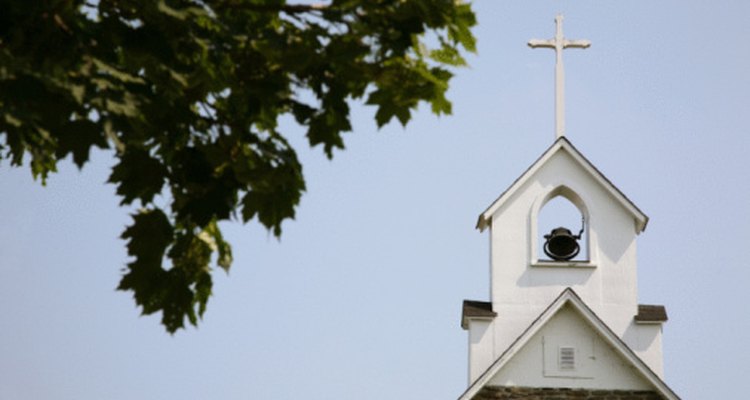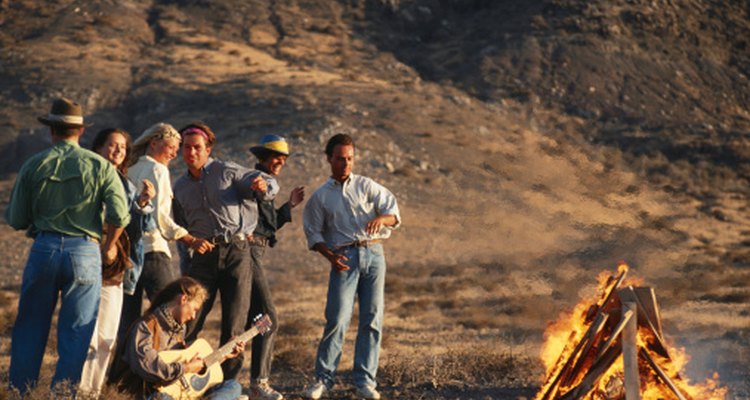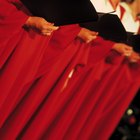
A retreat is a pleasant, casual way to bring your worship team together. Music teams need unity to perform their best. Your practice session will flow well if your team has a shared goal. That type of unity will be contagious to the rest of your congregation. Plan a retreat that is close to home, yet fosters an attitude of relaxation and worshipfulness. According to Laity Lodge, leading worship is one of the most spiritually and emotionally demanding jobs. Leaders often suffer from depression and burn-out. A yearly retreat is an effective way to combat the stresses involved.

Choose your location. If you have a state park nearby, find out if they offer group rates for their cabins. They may have a conference center available for meetings. Many denominational associations have retreat centers for local member churches. Find an environment that will allow you to practice music at the volume you desire. The room should have a sound system you are familiar with. Your location should either offer meals or have a place for your team to cook.
Create a detailed itinerary. This should include everything from breakfast to the last activity of the day. Schedule according to the time of day. Down-time should also be scheduled. This will ensure that you use your time wisely and accomplish everything you set out to do. Incorporate other events like a number of two-hour worship practices, icebreakers and devotions.

Plan creative activities. An effective activity that bonds people together is gathering around a bonfire. Host one of your practice sessions outdoors and make it acoustic with a couple of guitars and a djimbe. Since worship is a physical expression of honoring your god, music should not be the only activity. Incorporate dance or drama practice. This may take your team out of their comfort zone. Remind your team that God commanded them to love Him with their heart, soul, mind and strength, according to Luke 10:27.

Prepare your devotions. Focus on topics about worship. Include things like what a worshipful heart is as well as different ways of worshiping. As mentioned before, this does not involve only music. It involves creative ways of worship, but also quiet prayer and inward reflection. According to Stephen M. Newman, Pastor of Worship of Arts, there are nine ways of worship mentioned in the Psalms alone, including clapping, singing, playing instruments and dancing.
Practice Sessions
Schedule enough music for three to six months if possible. This will likely involve around 20 to 30 songs, including 5 new ones. If you plan three two-hour practice sessions you should have enough time to practice them all. Most should not be too difficult since you will already be familiar with them.
Hold one or two sessions for separate voice and instrument practice. Use two separate rooms. The vocalists should use the time to perfect harmonies, while the instrumentalists need time to arrange solos and perfect styles.
Enlist a special speaker. After the short lesson, break into small groups for discussion. Discover what worship means to you. Prepare guided questions to spur conversation.
Related Articles

How to Love Your Man When He's Stressed

Activities for Youth Fellowship

How to Start a New Member Class for ...

How to Hold a Diversity Day at Work

How to Plan a Couples Retreat

What Happens During a School Pep Rally?

Team Building Activities for Family ...

Christian Ice Breaker Games for Adults

How to Put Together an "Amazing Race" ...

Ideas for a College Ministry

How Do I Set a Casio Module 4756 Watch?

How to Arrange Seating at a Rehearsal ...

Small Group Activity Ideas for Church

How to Chair a Church Meeting

How to Prepare Hair for a Perm

Fun & Spiritual Programs for a Young ...

How to Organize a Motorcycle Rally
Does Marriage Counseling Work?

How to Organize a Church Choir

Ideas for a Womens' Devotional Prayer ...
References
Writer Bio
Based in Atlanta, Crystal Huskey began writing in 2008 for various nonprofit organizations and news agencies. She now serves as the assistant editor for a hyper-local news site. Huskey is completing her Master of Arts in international relations at American Public University.
Photo Credits
Jupiterimages/Photos.com/Getty Images